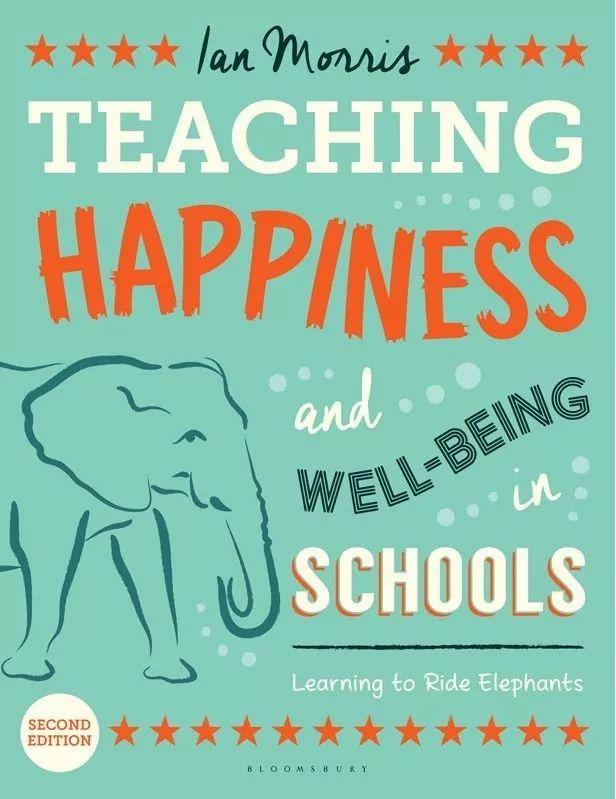Follow Us On Wechat!
Wellbeing is 'a dynamic state, in which the individual is able to develop their potential, work productively and creatively, build strong and positive relationships with others, and contribute to their community', defined by the UK Government Office for Science in 2008.
Then how could we measure children’s well-being as parents or teachers?

According to PISA, the first large-scale study to examine student well-being in its 2015 cycle, well-being is a multi-dimensional construct that comprises psychological, physical, cognitive and social facets. And 21 sets of questions were proposed in Well-being questionnaire for PISA 2018, which might demonstrate what contributes to students’ wellbeing and how we could act as parents or teachers.

21 sets of questions from well-being
questionnaire for PISA 2018
1. How is your health?
2. How much do you weigh?
3. How tall are you?
4. Thinking about yourself, how much do you agree with each of the following statements?
1) I like my look just the way it is.
2) I consider myself to be attractive.
3) I am not concerned about my weight.
4) I like my body.
5) I like the way my clothes fit me.
5. In the past six months, how often have you had the following?
6. How satisfied are you with each of the following?
7. At present, how many close friends do you have?
8. How many days a week do you usually spend time with your friends right after school?
9. How often do you talk to your friends on the phone, send them text messages or have contact through social media?
10. Are your friends well accepted by your parents or guardians?
11. How easy is it for you to talk to the following people about things that really bother you?
12. Thinking about your parents or guardians, how often do they do each of the following?
1) Help me as much as I need
2) Let me do the things I like doing
3) Show that they care
4) Try to understand my problems and worries
5) Encourage me to make my own decisions
6) Try to control everything I do
7) Treat me like a baby
8) Make me feel better when I am upset
13. How often do you worry about how much money your family has?
14. When was the last time you attended a mathematics class at school? How did you feel the last time you attended a mathematics class at school?
15. When was the last time you attended a <test language lesson> at school? How did you feel the last time you attended a <test language lesson> at school? (* Test language is the language students take during PISA)
16. Now think of the last time you had a break between classes at school. How did you feel?
17. When was the last time you spent time outside your home with your friends? How did you feel the last time you spent time outside your home with your friends?
18. When was the last time you did your homework/studied for school? How did you feel the last time you did your homework/studied for school?
19. Outside of school, during the past 7 days, on how many days did you engage in the following physical activities?
1) Moderate physical activities for a total of at least 60 minutes per day
2) Vigorous physical activities for at least 20 minutes per day that made you sweat and breathe hard
20. This school year, on average, on how many days do you attend physical education classes each week?
21. The following questions refer to your day yesterday. Please answer yes or no.
1) Overall, did you feel that you accomplished something yesterday?
2) Were you treated with respect all day yesterday?
3) Did you smile or laugh a lot yesterday?
4) Did you learn or do something interesting yesterday?
5) Did you have enough energy to get things done yesterday?
6) Overall, are you satisfied with how you spent your time yesterday?
7) Was yesterday a typical day?

Wellbeing course in schools
Being the first school in the UK to introduce a course in happiness and wellbeing in 2006, Wellington College introduces six elements which serve to promote wellbeing: physical health, positive relationships, perspective (developing a psychological immune system), engagement, the world (living sustainably), meaning and purpose.
Mr. Ian Morris, Head of Wellbeing in the Wellington College in UK, is the author of Learning to Ride Elephants: Teaching Happiness and Well-Being in Schools. “If we can teach young people how they function as humans, and then if we can teach them how to be not just functioning humans but excellent ones, we might be able to help them avoid many of the pitfalls that arise…”


Now, try to talk with your children/ students, and please remember: the giving of love is an education in itself.
Source:
http://www.oecd.org/pisa/
https://www.wellingtoncollege.org.uk/
https://www.amazon.co.uk/










 沪公网安备 31010502004453号
沪公网安备 31010502004453号





 成功提交后我们将尽快与您联系,请注意来电!
成功提交后我们将尽快与您联系,请注意来电!







 成功提交后我们将尽快与您联系,请注意来电!
成功提交后我们将尽快与您联系,请注意来电!


